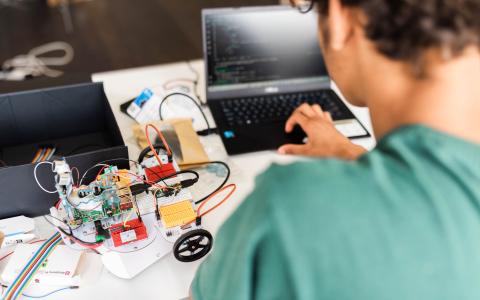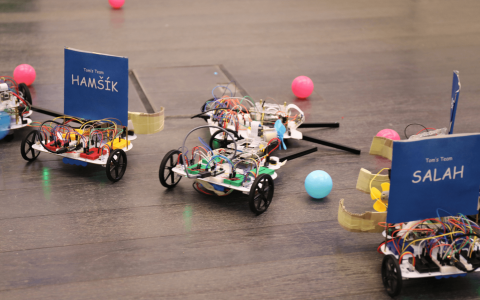
Navigating real-world challenges at the Neuronauts School Club
By Hyewon Kim
A gathering of minds
A few minutes past Noon on a bright Saturday in March, a dozen secondary school students aged 13 to 17 trickled into SWC one by one. As they settled into four tables placed together in a long horizontal setup, casual conversations filled the large lecture theatre.
First organised in 2023 and led by SWC PhD students Svenja Nierwetberg, Jai Bhagat, and Dammy Onih, helped by teaching assistant Pip Coen, the Neuronauts School Club has invited London secondary school students to increase accessibility, excitement, and career prospects in science.
A lesson in impactful storytelling
Tiago Branco, Group Leader at SWC, addressed the students at the beginning of the four-hour session. Based on his own experience sharing his research to various audiences, he delivered a short lecture on the subtle art of project presentation.
"Whether we like it or not, impressions really matter," he said. Tiago delved into the nuances of effective communication, urging the students to make their stories compelling and impactful.
As he listed insights from his research on instinctive behaviours and escape mechanisms, one student nodded in agreement.
“Be ready to convince your grandmother, 8-year-old sibling, or the prime minister why the problem you’re trying to solve is important,” Tiago emphasised.
Navigating real-world challenges
Following the talk, the row of tables shifted shape and the students divided into 4 groups. Guided by their mentors, they began working on straightening out any remaining folds of their projects, all of which tackle real world challenges and are to be submitted in 3-minute video presentation format to the Big Bang Competition.
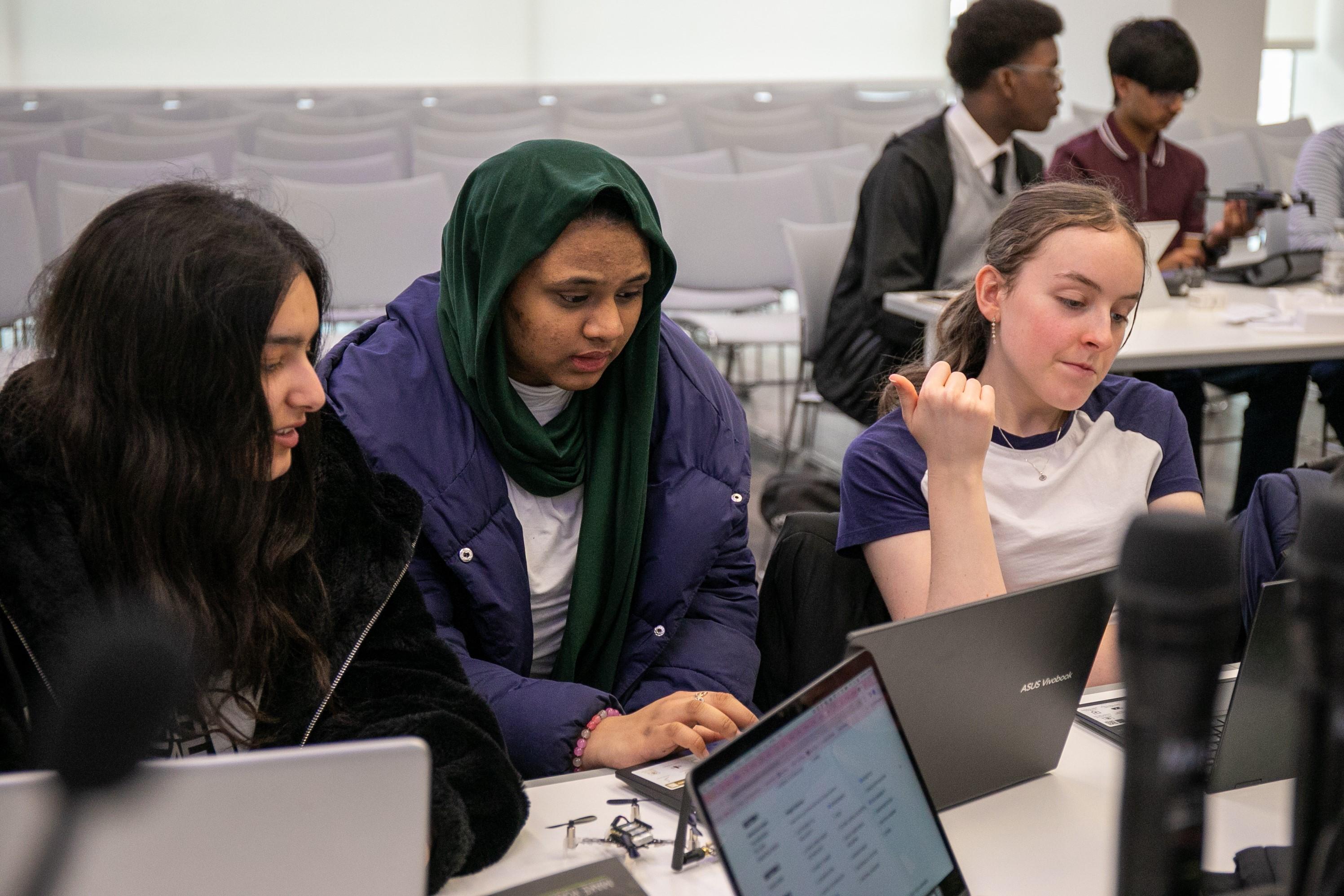
Group A envisions the creation of a "Bumble Bot," aiming to address the decline in bee pollinators through innovative drone technology. "We want to address the issue of sustainability," they explained, highlighting the importance of preserving the ecosystem amidst urbanisation. With meticulous planning and programming, they aim to create a controllable drone capable of pollinating flowers autonomously.
Group B focuses on medical and sports applications, developing a prosthetic finger that responds to EMG signals for enhanced functionality. "We’re looking to help people medically or in sports," they shared, driven by a desire to make a tangible impact on people's lives. Despite facing technical challenges, they persevered, leveraging Arduino technology to create a prototype that holds the promise of improving mobility and quality of life for many.
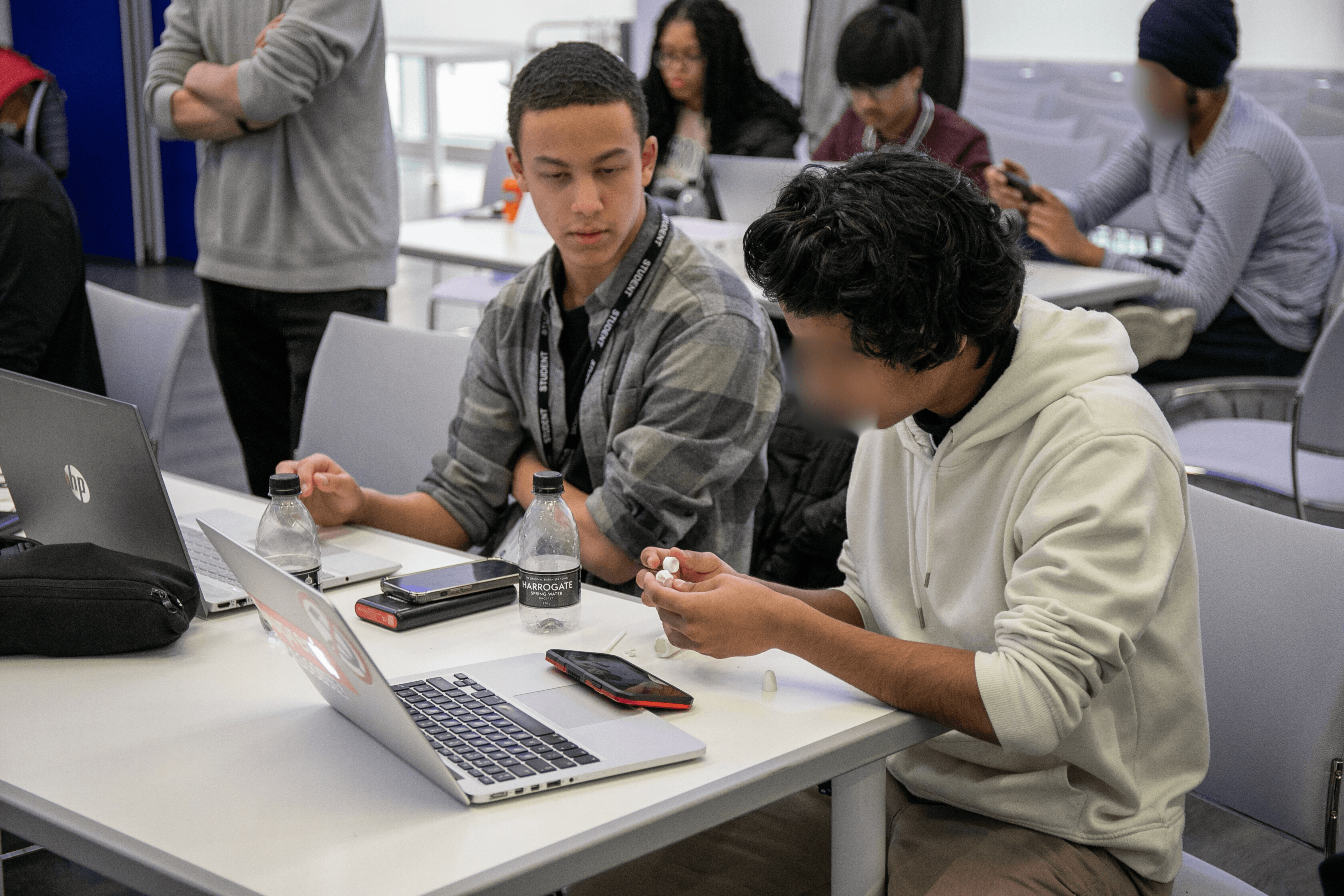
In Group C, inspired by recent news of wildfires in Australia, students devised the "Pyro Patrol" project—a drone-based system for early detection and alerting. "We were motivated by what was in the news at the time," they shared, highlighting their commitment to addressing pressing societal issues. With careful coding and sensor integration, they aim to create a system that can detect and respond to wildfires swiftly, potentially saving lives and minimising environmental damage.
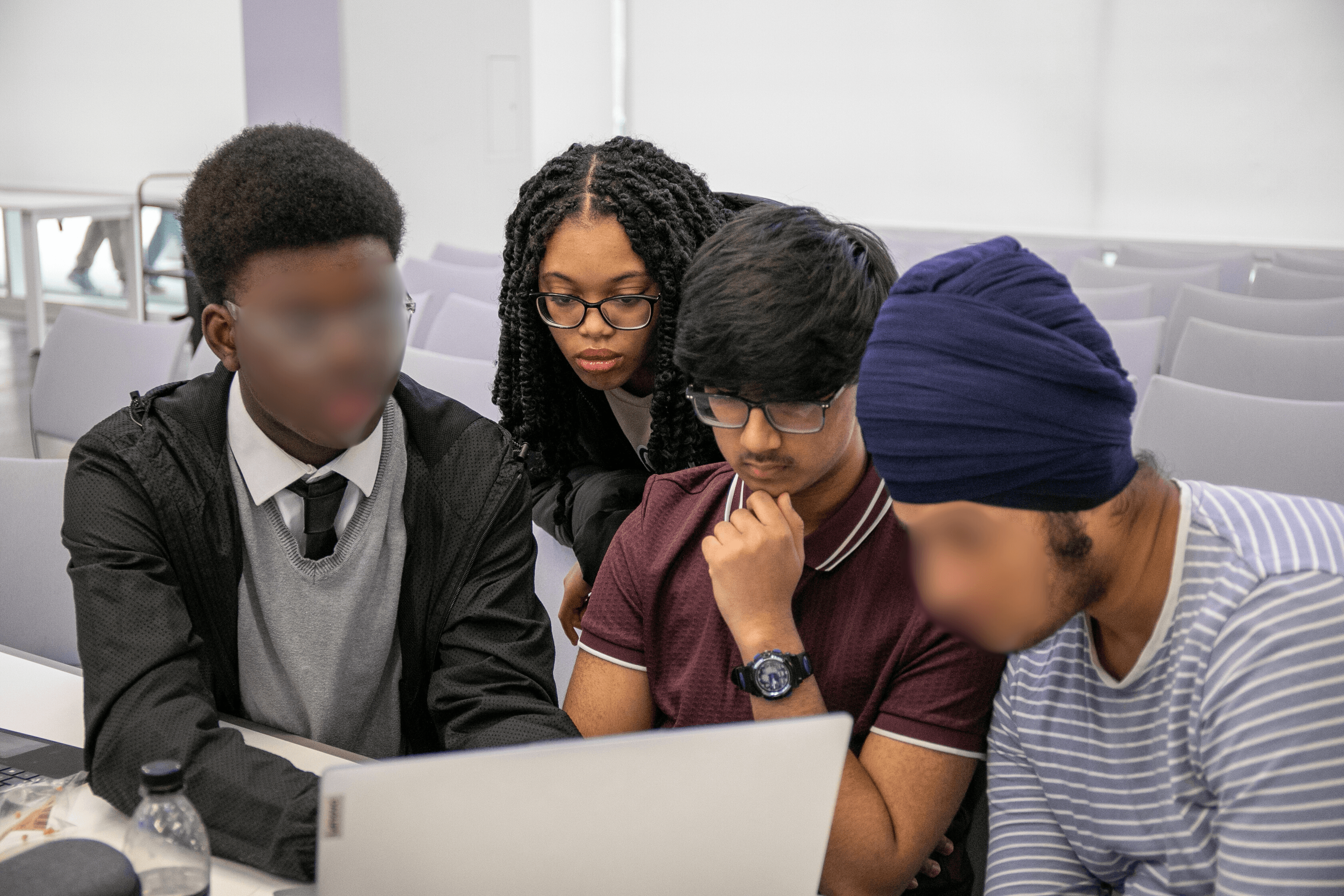
Group D takes on the challenge of revolutionising sports analysis with their "Match Mentor" project. "People don't normally have access to academy/tech sport and the chance to progress," they observed, recognising the barriers that exist in accessing high-quality coaching and analysis. By leveraging computer vision technology, they aim to democratise sports analysis, providing valuable insights to players of all economic backgrounds.
Crafting compelling narratives and culture of collaboration
With the Big Bang Competition on the horizon, the students immersed themselves in planning their video presentations. Under the guidance of Svenja, Jai, and Pip, they slowly refined their storytelling skills, ensuring that their ideas shone on the screen. It was a collaborative effort, fuelled by a shared direction not only toward innovation but a rich narrating of how unexpected hurdles taught them important lessons. “We’re guiding the students to embrace failure as part of the story,” shared Svenja.
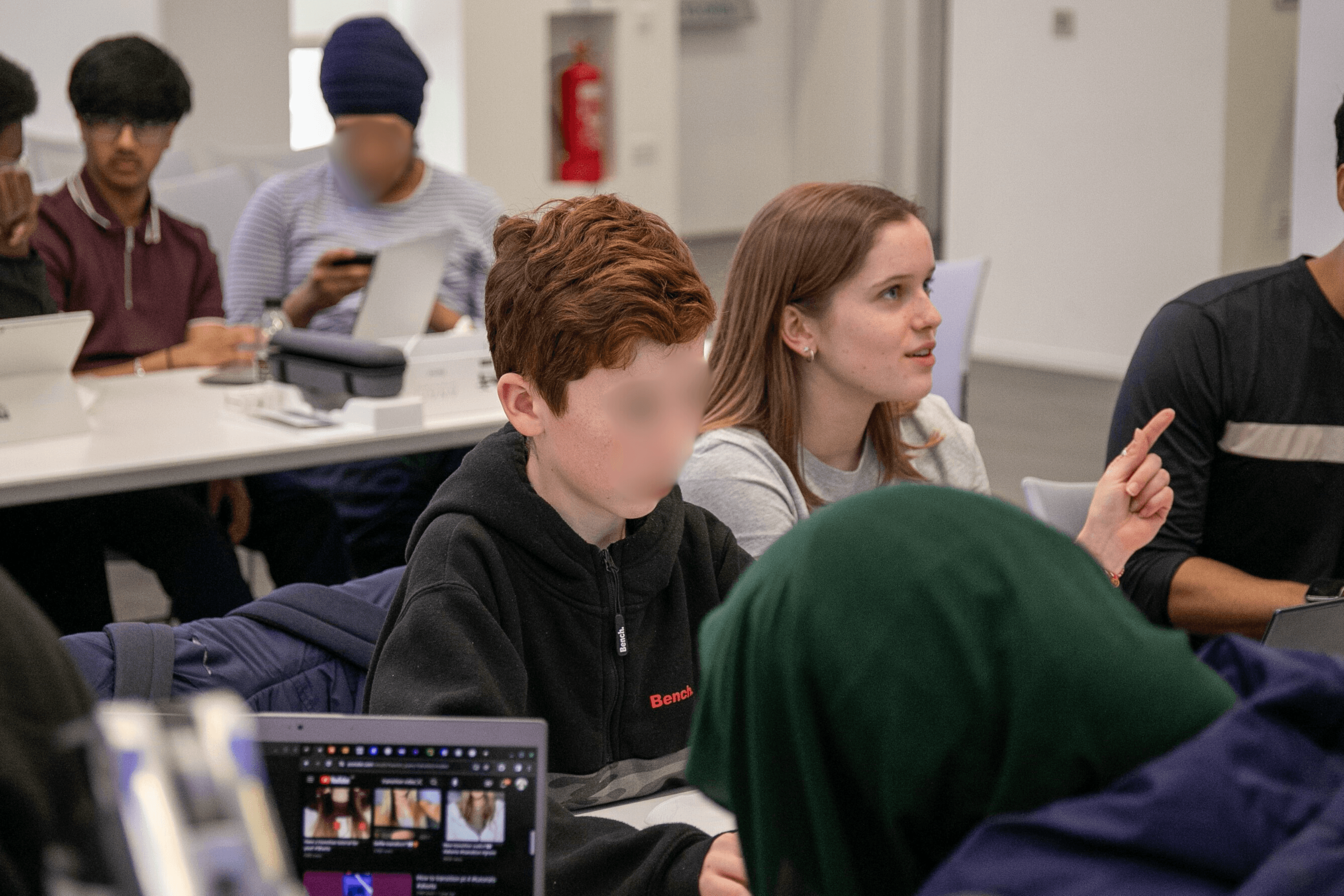
Beyond academic pursuits, the Neuronauts School Club fosters a sense of community and collaboration. The Neuronauts Summer Camp has merged seamlessly with the School Club, offering younger students the opportunity to learn from their peers and mentors, and to pay it forward themselves. Initiatives like one-day projects and interdisciplinary teamwork nurture a spirit of creativity and resilience among the students.
Celebrating and continuing the journey
As the 2024 Neuronauts School Club draws to a close this spring, the students eagerly anticipate their final celebration in Regent's Park. Amidst the soaring trees, they plan to test their drones and reflect on shared experiences.
With many aspiring to pursue computer science in university, the Neuronauts School Club has ignited a passion for hands-on innovation that will continue to drive them forward.
Learn more about Neuronauts:
